2024 Annual Conference – Speakers
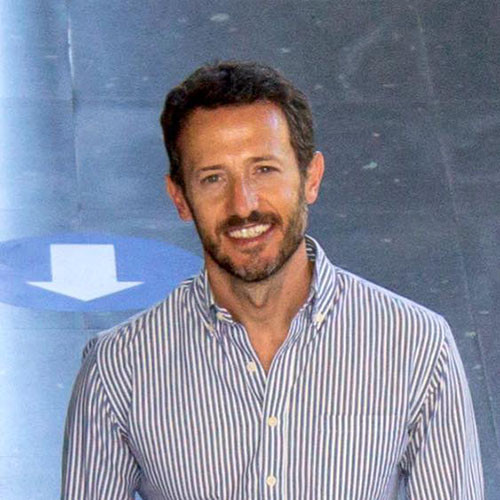
Pedro Arezes
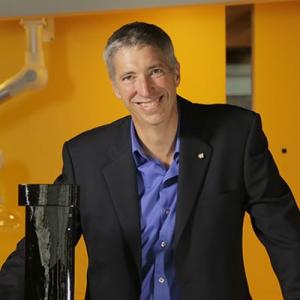
Douglas P. Hart
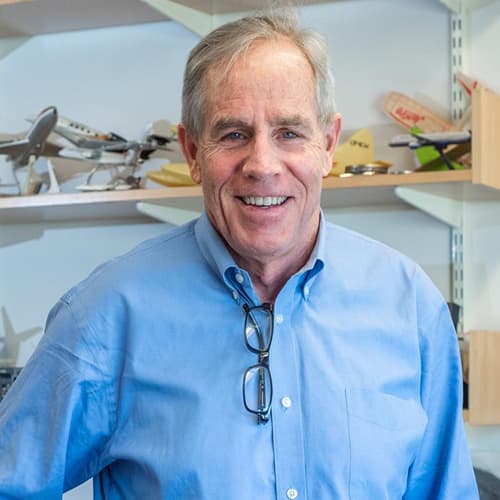
R. John Hansman
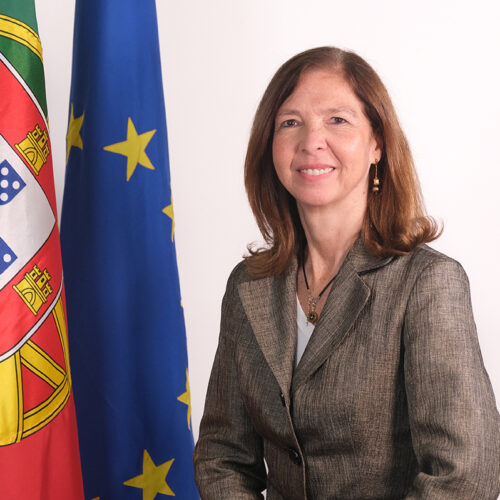
Ana Paiva
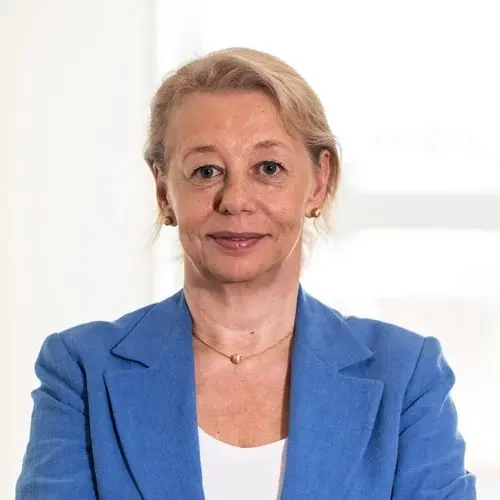
Madalena Alves
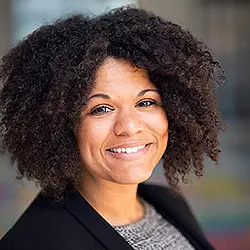
Cadence Payne
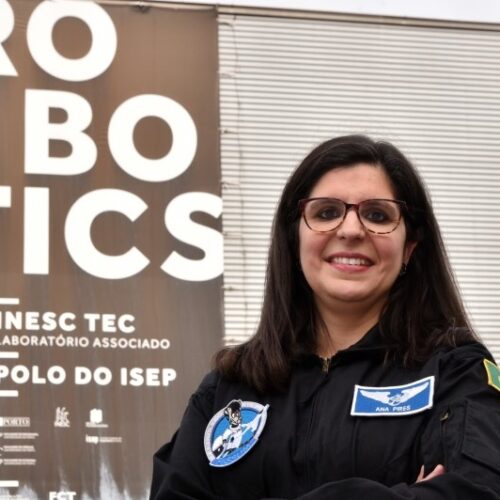
Ana Pires
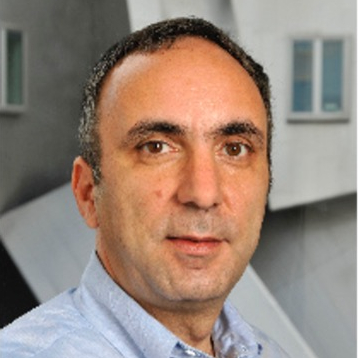
Dara Entekhabi
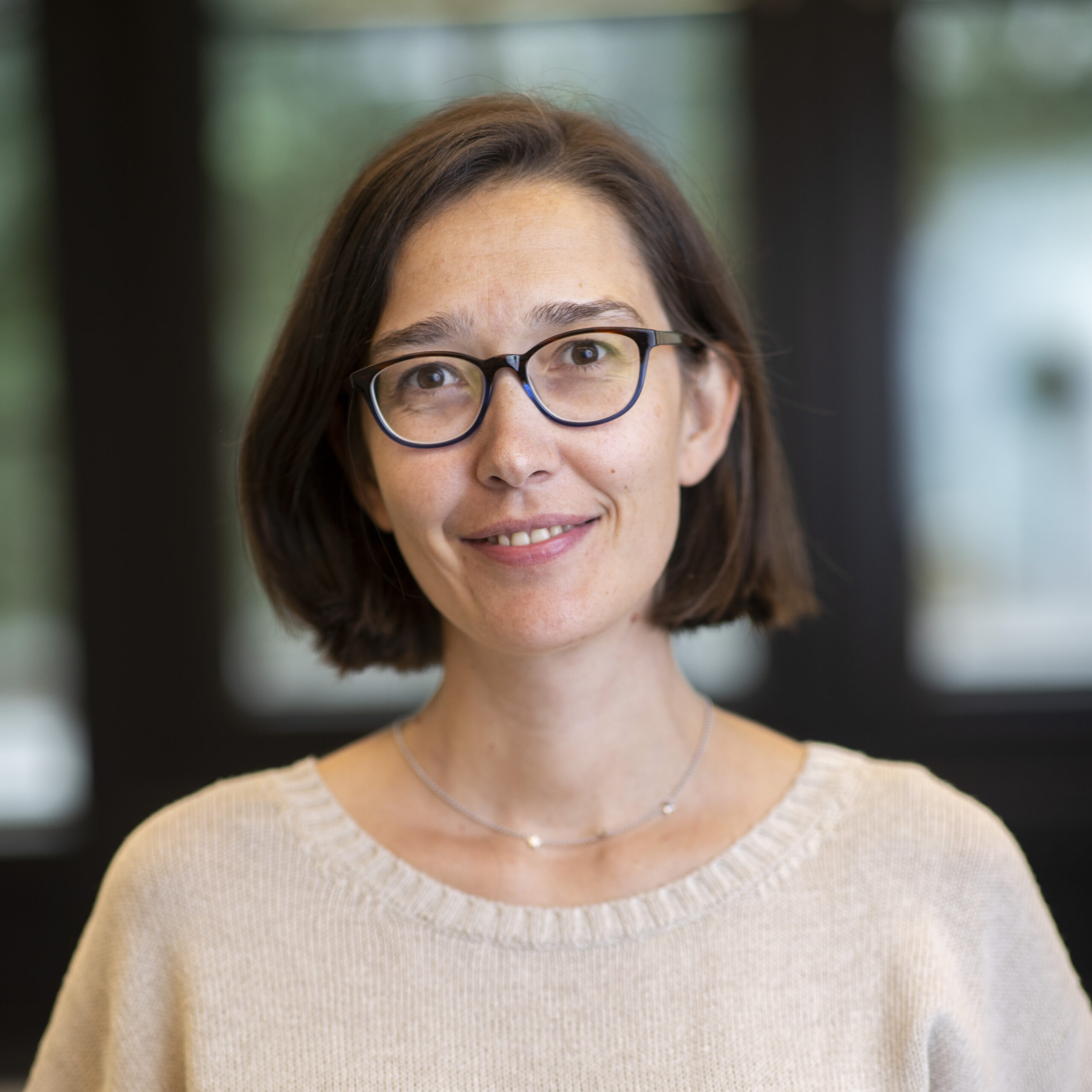
Carmen Guerra-Garcia
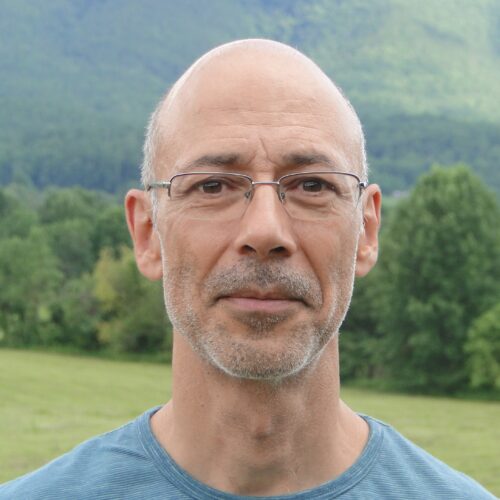
Vasco Guerra
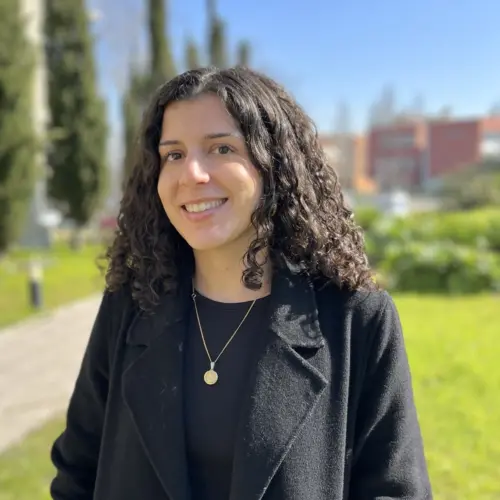
Catarina Jóia Santos
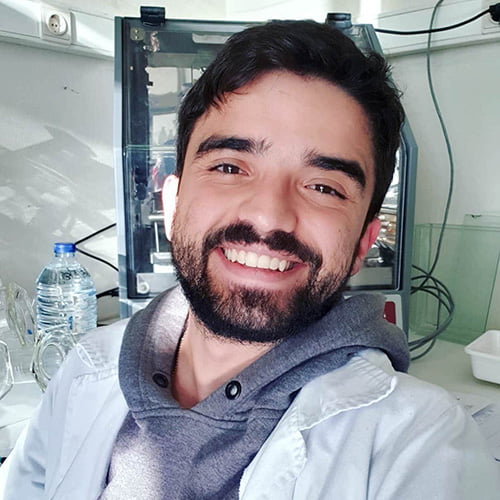
Adriano Santos Silva
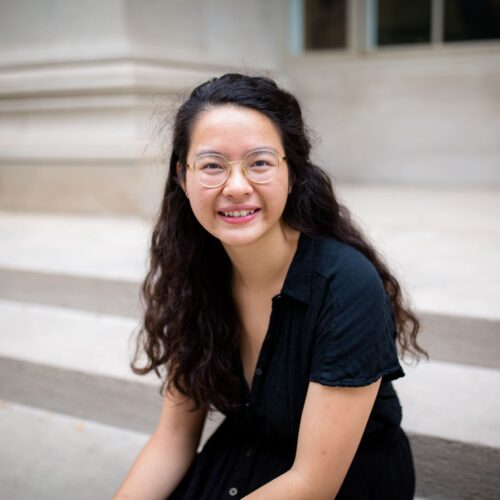
Kaitlyn Gee
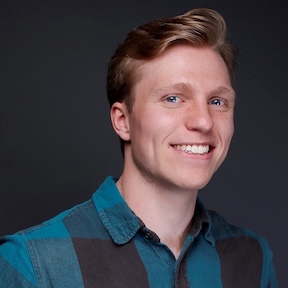
Aaron William Langham
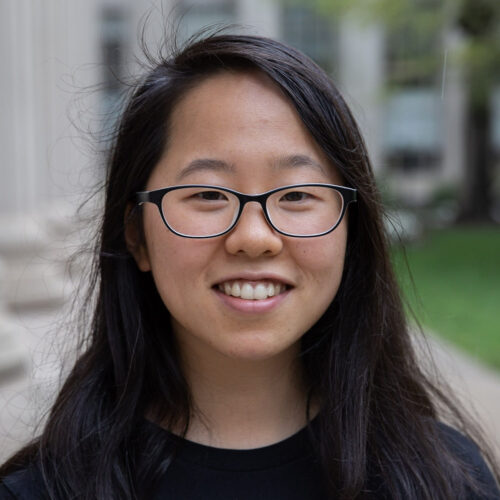
Charlene Xia
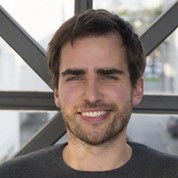
Renato Mendes
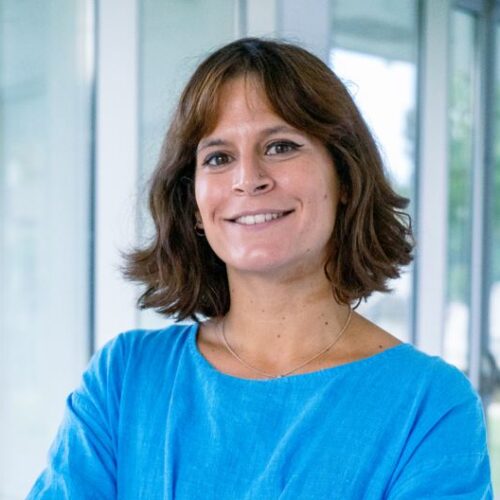
Mariana Fernandes
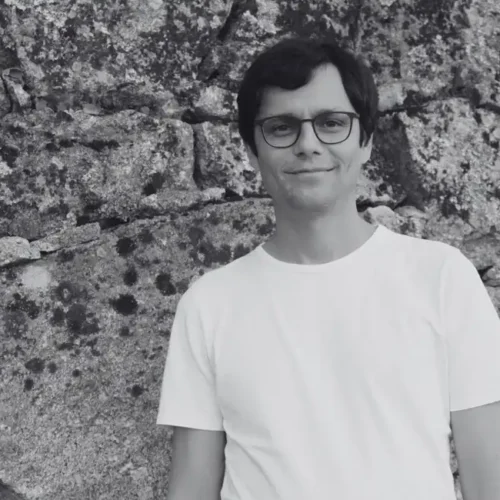
Daniel Wiesmann
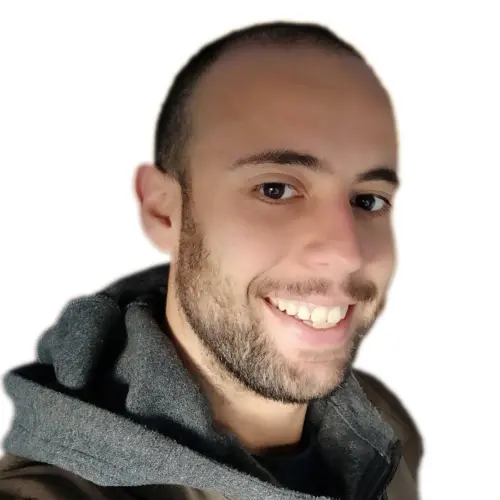
Gabriel Serra
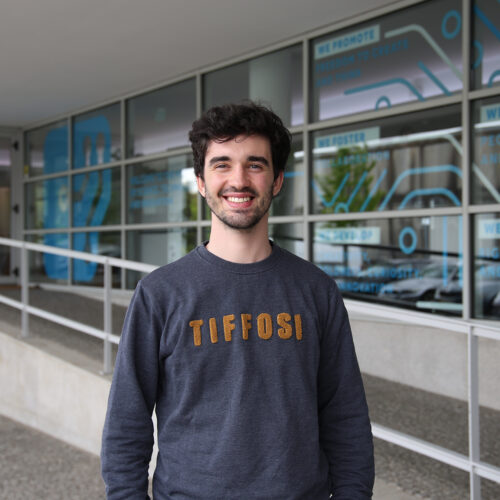
André Santos
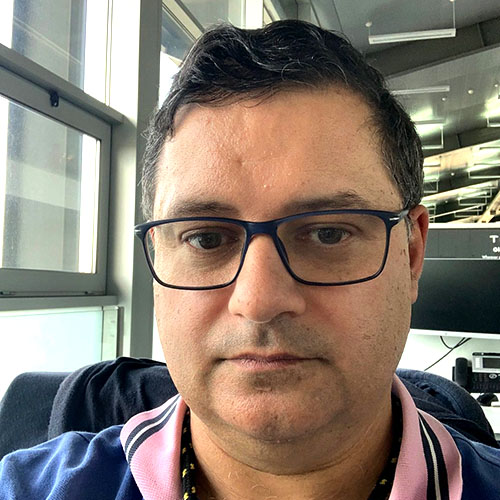
Hélder Silva
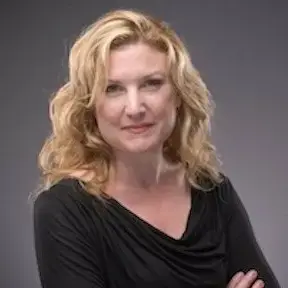
Christina Chase
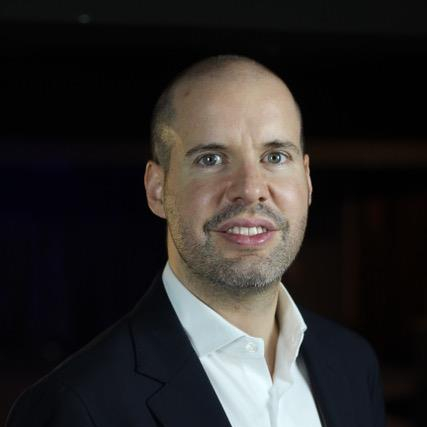
Alexandre Ferreira da Silva
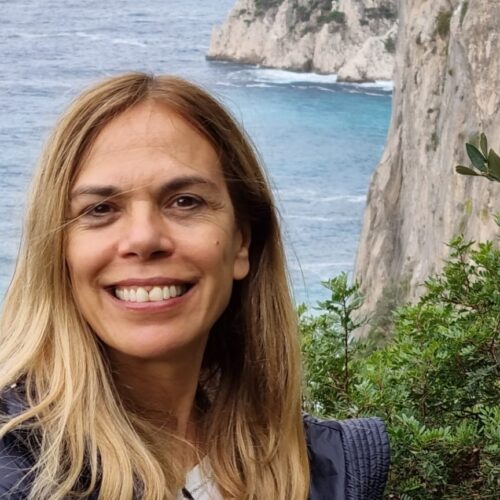
Cristina Santos
Pedro Arezes
Since 2016, Pedro Arezes has been a National Director of the MIT Portugal Program. Since 2013, Pedro has been a Full Professor (Professor Catedrático) on Human Factors Engineering at the School of Engineering of the University of Minho, and a visiting fellow at MIT and Harvard University, both in the USA. Since 2013, he is also an invited full Professor at the University of Porto (Engineering Faculty). In 2010/2011, he worked as an invited researcher at TU Delft (Safety Science group), in the Netherlands.
Having a background on Industrial Engineering, he holds a PhD in the same domain from the UMinho, where he also coordinates, since 2003, the Ergonomics & Human Factors research group,being also the Director of the Ergonomics Laboratory and Program Director of the PhD Program on Industrial and Systems Engineering. He has published more than 100 papers in peer-reviewed scientific journals, authored and edited more than 50 Books and book chapters, and authored more than 300 peer-reviewed papers published in international conference proceedings. During his academic career he has been a member and/or PI of more than 30 international and national competitive funded research projects across several domains, with a special emphasis to the domains of Ergonomics and Human Factors, and of Occupational Safety and Hygiene. He has been collaborating (as a member of the editorial board, guest editor and/or reviewer) with more than 20 recognized international scientific journals.
Douglas P. Hart
MIT professor of mechanical engineering, MIT Portugal Program co-director, Mechanical Engineering Controls, Instrumentation, and Robotics division head, Gordon Leadership and Undergraduate Professional Opportunity Program director, and co-founder of multiple venture backed companies. Doug is a technical advisor for numerous companies and professional organizations and involved in the commercial development of technologies ranging from satellite propulsion and autonomous drones to surgical robots. Current research focus is on energy systems for ocean robotics and shipping. B.Sc. U of I, S.M. MIT, Ph.D. Caltech.
R. John Hansman
R. John Hansman is the MIT Portugal Program Director at MIT. He’s the T. Wilson Professor of Aeronautics & Astronautics MIT, where he is the Director of the MIT International Center for Air Transportation.
He conducts research in the application of information technology in operational aerospace systems. Dr. Hansman holds 6 patents and has authored over 250 technical publications. He has over 6000 hours of pilot-in-command time in airplanes, helicopters, and sailplanes including meteorological, production, and engineering flight test experience.
Professor Hansman chairs the US Federal Aviation Administration Research Engineering & Development Advisory Committee (REDAC) as well as other national and international advisory committees.
He is a member of the US National Academy of Engineering (NAE), is a Fellow of the AIAA and has received numerous awards including the AIAA Dryden Lectureship in Aeronautics Research, the ATCA Kriske Air Traffic Award, Wright Brothers Master Pilot Award, a Laurel from Aviation Week & Space Technology, and the FAA Excellence in Aviation Award.
Ana Paiva
Ana Paiva holds a PhD in Computer Science specializing in Artificial Intelligence, along with a Master’s and a Bachelor’s degree in Electrical and Computer Engineering.
She is a researcher and Full Professor in the Department of Computer Science and Engineering, IST (“Instituto Superior Técnico”) from the University of Lisbon She founded the INESC-ID research group on Artificial Intelligence for People and Society (GAIPS), which she led for twenty years.
Ana Paiva has served as Secretary of State for Science since April 2024.
Madalena Alves
Full Professor, PhD in Chemical and Biological Engineering from the University of Minho (UMinho). She was director of the Center for Biological Engineering (CEB), a position she held from January 2020 until she took office as President of FCT on July 1, 2022.
He graduated in Chemical Engineering from the University of Porto and obtained his master’s degree in Biochemical Engineering from Instituto Superior Técnico.
He has held positions of academic and scientific management and coordination at the University of Minho, including course directorship, participation in the School Council and in the Scientific Council of the School of Engineering.
Her research interest is in Environmental Biotechnology and she has supervised or co-supervised PhD students and post-doctoral researchers in this area and in interface areas. She was coordinator, co-coordinator or team member of numerous projects funded in Calls national and European. She collaborates with a network of international researchers, and attracted to the University of Minho a researcher who would win an ERC AdvG shared scientifically and financially with her research group. He has participated in several evaluation committees of international agencies, such as the Helmholtz Association (Germany), or the Irish and Swiss Science Foundations.
She has received several awards, including the Lettinga Award (2004), financed by international companies, BES innovation (2005) and the National Environmental Innovation Award (2006). In September 2009 she was awarded an Honorary Doctorate by the Technical University of Iasi in Romania. In January 2016 she received the honorary title of Citizen of Merit awarded by the Municipality of Viana do Castelo, where she was born.
| Source FCT |
Cadence Payne
Cadence Payne recently received her PhD in May 2024 from the department of Aeronautics and Astronautics at MIT. She was a member of the Space Telecommunications, Astronomy, and Radiation Lab and her dissertation work was funded by the MIT Portugal Program (MPP). Through MPP, Cadence was a member of the AEROS MH-1 team, where she supported mission design, payload performance analysis, and helped plan validation strategies for achieving the mission’s scientific objectives. These efforts culminated in conference publications and presentations for the AIAA ASCEND, International Astronautical Congress, Ocean Visions, and International Operational Satellite Oceanography conferences. Cadence also briefed the Portuguese Minister of Science, Technology, and Higher Education on the AEROS MH-1 mission, and created two poster presentations for the MIT Portugal Program, one of which won an award for best overall poster. She is now at the Aerospace Corporation in El Segundo, CA as a Senior Member of Technical Staff in the Imaging Spectroscopy Department.
Ana Pires
Ana Pires is a researcher at the Centre for Robotics and Autonomous Systems of INESC TEC. Her research mainly focuses on Space-Earth-Marine interaction, Space Resources, Space Mining, geotechnics, geophysics, and the development of geotechnologies or georobotics for space exploration. She was the first Portuguese woman to complete the Astronaut Scientist Program as part of the “Polar Suborbital Science in the Upper Mesosphere” Project of the International Institute for Astronautical Sciences (IIAS), supported by NASA Flight Opportunities. She is passionate about exploring extreme environments and is a fellow member of The Explorers Club. Additionally, she is a diver (SSI Certification) and was the Crew Scientist of the “Pegasus” team (Crew 281), which carried out a 2-week analog mission in May 2023 at the “Mars Desert Research Station” (MDRS), located in Utah (USA). The station is owned and managed by the Mars Society. Since 2018, Ana Pires has been promoting human spaceflight, astrogeology, technology, robotics, and STEAM outreach activities in Portugal. She was the leader and commander of the CAMões project (Caving Analog Mission for Ocean, Earth, and Space exploration), which was the first Lunar analog mission in Portugal that occurred inside the Gruta Natal (Terceira Island) for one week in November 2023. Pires has also been exploring the newly formed lava tubes in La Palma (Canarian Islands, Spain), carrying out science, and performing high-resolution scans to develop 3D models of these structures. In January 2024, Ana Pires won the Science and Technology category of the Women 3.0 Awards, an initiative of the G100 Club, Communication & Advocacy Wing, in collaboration with Diplomacy & Business Magazine. The awards aim to “celebrate women who exhibit exceptional leadership and remarkable achievements“ and “foster significant“ and inspiring change. Pires has tried to promote human space flight, astrogeology, technology, robotics, and STEAM outreach activities in Portugal. She is the PI of the “Space Operations, monitoring, and mapping explorer: a smart Orb-system” project funded by the MIT Portugal Program.
Dara Entekhabi
Dara Entekhabi is the Bacardi and Stockholm Water Foundations Professor MIT in the Department of Civil and Environmental Engineering with joint appoint in the Department of Earth, Atmospheric and Planetary Sciences. His research interests are in land-atmosphere interactions, surface water-groundwater coupling and Earth remote sensing. He is the Science Team leader of the NASA Soil Moisture Active Passive (SMAP) mission that was launched in 2015. He received his Ph.D. from MIT in 1990. He is a Fellow of the American Meteorological Society, the American Geophysical Union and the Institute of Electrical and Electronics Engineers. He is a member of the National Academy of Engineering.
Carmen Guerra-Garcia
Carmen Guerra-Garcia received the B.Sc. and M.Sc. degrees in aeronautical engineering from the Polytechnic University of Madrid, Spain, and the S.M. and Ph.D. degrees in aeronautics and astronautics from the Massachusetts Institute of Technology (MIT), Cambridge, MA, USA. She was a Research Engineer in Boeing Research and Technology Europe, a Postdoctoral researcher with MIT, and a visiting researcher with Princeton University. She is currently an Associate Professor with the Department of Aeronautics and Astronautics at MIT and leads the Aerospace Plasma Group. Her research interests include aerospace engineering, low-temperature plasma technologies, and gas discharge physics. Her current efforts span from aircraft safety issues (interaction of lightning with aircraft, novel methods for protection and mitigation against lightning strike damage), to plasma technologies for ignition, combustion, and chemical conversion, and combine multi-physics modeling, computation, and experimentation. She is a recipient of the NSF CAREER Award (2024), the Office of Naval Research Young Investigator Award (2021), the International Fulbright Science and Technology Award (2009-2012), and the Amelia Earhart Award (2012), amongst others.
Vasco Guerra
Vasco Guerra is Full Professor at the Department of Physics of Instituto Superior Técnico, University of Lisbon, Portugal, and the Head of the Modelling and Simulation activities of the N-PRiME group of Instituto de Plasmas e Fusão Nuclear (IPFN). He held a visiting professor position from the Royal Netherlands Academy of Arts and Science in 2020 and was invited professor at Sorbonne Université in 2016. His research focuses on the modeling of non-equilibrium kinetics of low-temperature molecular plasmas. In 2016 he was awarded the William Crookes Plasma Prize, co-sponsored by the European Physical Society and the Institute of Physics Publishing, “for the outstanding contribution to the modeling of molecular low-temperature plasmas.” His current research interests comprise the use of non-thermal plasmas for sustainable chemistry and for space in-situ resource utilization.
Catarina Jóia Santos
Catarina Jóia Santos is a PhD Fellow in the MIT Portugal Program, currently enrolled in the Environment and Sustainability Doctoral Program at NOVA FCT. Her thesis focuses on the public perception and cost-benefit analysis of various Nature-based Solutions for Coastal Protection. Since 2019, Catarina has been a researcher at MARE – Marine and Environmental Sciences Centre, where she began with her Master’s dissertation on shoreline video monitoring. Since then, she has contributed to several research projects, including To-SEAlert, SIARL, PLAAC-Arrábida, and CAPonLITTER, all aimed at protecting and sustainably managing coastal areas.
Email::csj.santos@fct.unl.pt
Adriano Santos Silva
Adriano dos Santos Silva graduated in Chemical Engineering from the Federal Technological University of Paraná (UTFPR) in 2019, under a double degree program with the Polytechnic Institute of Bragança (IPB), where in 2020, he obtained a Master’s degree in Chemical Engineering. In 2021, he started his PhD in Chemical and Biological Engineering at the University of Porto with a PhD scholarship financed by FCT under the MIT Portugal Program -FCT agreement. His research interests are related to the synthesis of nano- and macro-structured materials for environmental and biomedical applications, algorithm development for municipal solid waste collection, and the Internet of Things. During his PhD, he had 2 projects related to his PhD approved by Sociedade Ponto Verde to study digitalization strategies for waste collection and the upcycling of plastic solid wastes via chemical recycling to produce carbon nanotubes. He has published 14 articles in international peer-reviewed journals and presented more than 80 communications at national/international events.
Kaitlyn Gee
Kaitlyn Gee is a PhD candidate in the Department of Mechanical Engineering at the Massachusetts Institute of Technology. Her research centers on understanding how the value, cost, and environmental burden of additive manufacturing are coupled through the development of computational models for laser powder bed fusion, and how Native Hawaiian ancestral and contemporary knowledge could contribute to innovative design for sustainable, circular, and reciprocal manufacturing systems. She is a National Science Foundation Graduate Research Fellow, a Tau Beta Pi Centennial Fellow, and an MIT Presidential Fellow. Her work has been published and presented in the Rapid Prototyping Journal, the International Conference on Simulation for Additive Manufacturing (SIM-AM), and the International Design Engineering Technical Conferences (IDETC).
Aaron William Langham
Aaron W. Langham received the B.E.E. degree in electrical engineering from Auburn University, Auburn, AL, USA in 2018, and the M.S. and E.E. degrees in electrical engineering and computer science from the Massachusetts Institute of Technology, Cambridge, MA, USA in 2022 and 2024, respectively. He is currently pursuing the Ph.D. degree in electrical engineering and computer science at the Massachusetts Institute of Technology, Cambridge, MA, USA. His research interests include signal processing, machine learning, and IoT platforms for energy systems.
Charlene Xia
Charlene, Chuck, is a PhD candidate in the Department of Mechanical Engineering at MIT. In 2022, she participated in the MIT Portugal Marine Robotics Summer School as a student. She returned as a teaching assistant in 2023, 2024, and again in 2025. Her research focuses on developing optical sensors for monitoring marine microbiomes in aquaculture. Previously, she worked on underwater acoustic communication systems and low-cost marine sensors. In her free time, she volunteers at MIT MakerWorkshop and teaches high school students. She is looking forward to working with new students this year.
Renato Mendes
Renato Mendes holds a PhD in Physics (Oceanography) from the University of Aveiro and completed a Masters in Meteorology and Physical Oceanography in 2010 at the same institution in Portugal. His research interests focus mostly on coastal oceanography, using multi-platform data, such as observations, remote sensing, and numerical models. Recently, his studies have addressed the use of networked autonomous systems to survey coastal fronts in a coordinated and collaborative manner. He is co-authored over 20 articles in journals as well as participated in the writing and submission of several FTC, EEA and H2020 projects.
He also holds a project management professional certification by the Project Management Institute (PMI). As of February 2021, he is a researcher at Colab +Atlantic with an alignment with the LSTS lab at FEUP. He worked as a mediator in interdisciplinary teams in the CoLAB + ATLANTIC combining his strong background in oceanography with ocean robotics, exploring innovative methodologies for ocean observation.
Mariana Fernandes
Mariana Fernandes works at INL since 2018 as Business and Strategic Relations Officer, focusing on the creation of long-term strategic relations between INL and private and public organisations, as well as on the business development and private and public funding acquisition. At the moment, Mariana is the coordinator for National funding at INL.
She has extensive experience in supporting companies, research institutions, business associations and networks, as well as clusters and governmental authorities to apply for national and European funding schemes, to manage and monitor their projects, to identify cooperation opportunities and financing options and to develop growth strategies. This experience was attained during her professional experience at Sociedade Portuguesa de Inovação (SPI), from 2012 to 2015, and at the Global Incentives and Investment team at Deloitte (Portugal), from 2015 to 2018.
Mariana holds a PhD in Bioengineering (focused on the merge of life sciences and photonics) under the MIT Portugal Program.
Daniel Wiesmann
Daniel is a product manager at Development Seed. He specializes in spanning bridges between science, code, and customer needs. He enjoys collaborating with diverse stakeholders to find impactful solutions for complex problems.
Daniel has been following his passion for building online mapping tools since he built his first digital map to visualize his research results. For over a decade, he has been creating geospatial software tools in the cloud by combining Data Science with Earth Observation and Artificial Intelligence. The focus throughout his career has been on building solutions that tackle complex social and environmental problems. Daniel has a passion for open-source tools and open data. He has always enjoyed giving back to the community by contributing code and data.
Daniel holds a Ph.D. in Sustainable Energy Systems from the Technical University of Lisbon in the framework of the MIT Portugal program. He also holds an MSc in Physics from ETH Zurich. He has researched at renowned institutes such as MIT and the University of Cambridge during his academic career.
Gabriel Serra
Industrial Designer/Product Design Engineer currently undertaking his PhD in Mechanical Engineering at the University of Aveiro, in Portugal. With a multi-disciplinary background, his domain involves every step of the product development – from research and concept, to prototyping and manufacturing, including 3D modelling and numerical simulations. He’s been recently working on the development of a novel sustainable helmet concept for urban micromobility.
André Santos
André Santos is an electronics and computer engineer currently completing his master’s degree in Automation and Systems at the School of Engineering (ISEP). He previously did an academic internship at Bosch Security Systems, which marked the conclusion of his bachelor’s studies. In parallel with his master’s, André works as a junior researcher at INESCTEC’s Centre for Robotics and Autonomous Systems, where he has been awarded a scholarship to work under the scope of the SENTINEL-Orb project, funded by the MIT Portugal Program. He is also developing his Master Thesis under the framework of SENTINEL-Orb project, expected to be concluded in the first trimester of 2025. A highly motivated and passionate engineer, André is eager to expand his knowledge, particularly in areas related to space applications. His research at INESCTEC spans various fields, including sensor implementation and data analysis, computer vision, visual-inertial odometry algorithms, and 3D design and printing. The SENTINEL-Orb project offers André an excellent platform to demonstrate the synergy between space exploration and engineering.
Hélder Silva
Hélder Silva has more than 20 years of experience working with critical software systems for aeronautics and space systems. He led the development of RTEMS Improvement, a real-time operating system for space missions, which is currently flying in several of the European space missions. He has supported several of the current flying missions (Galileo, smallGEO, IXV, Solar Orbiter, ExoMars, MTG, PLATO, etc), including outside Europe missions (KOMPSAT). He has a degree in Aerospace Engineering and the Master (lectures) of Control and Robotics, Artificial Intelligence and an MBA.
Christina Chase
Christina Chase is a Lecturer at MIT in the Department of Electrical Engineering and Computer Science with a joint appointment in the Department of Mechanical Engineering. In 2015, she co-founded the MIT Sports Lab with Prof. Anette “Peko” Hosoi and serves as its Managing Director.
Prior to this she was the first Entrepreneur in Residence at MIT through the Martin Trust Center for MIT Entrepreneurship. Christina has helped hundreds of teams go from concept to company In 2013, she was named one of the 25 Most Influential Women in the Boston Tech Community and in 2014, Mashable named her one of the 15 People Shaping Boston’s Tech Scene.
In MIT’s School of Engineering, Christina leads the one of the largest undergraduate entrepreneurship classes, Entrepreneurship in Engineering. She helped start and co-direct, StartMIT (formerly Start6), an entrepreneurship bootcamp, with Dean Anantha Chandrakasan. She has served as the Academic Advisor for the Department of Mechanical Engineering’s 2A Entrepreneurship Track and as an advisor for the Design of Medical Devices and Precision Machine Design classes and has lectured on innovation in the Department of Material Science in their senior capstone design class Materials Projects Laboratory, where students create the next generation of groundbreaking materials, as well as mentored for the MADMEC Material Science Design Competition. She has also taught Applications in Advanced Entrepreneurial Techniques, where advanced MIT startup teams are helped to accelerate growth over the semester.
Christina is an entrepreneur with a track record of success in a several industries, starting her first company when she was 18 years old. Most recently she was the CEO and co-founder of Firehoze, an education technology company that focused on online education that involved over a hundred instructors from the most prestigious universities. She has worked with numerous founding teams across industries, including B2B hardware, healthcare IT, materials and coatings, and consumer electronics, and has also led innovation in established companies, such as the photonics company, Labsphere, where as the Director of the Materials and Coating division, in under a year she tripled revenue and led the group to file three key patents for new materials.
Christina is a Techstars mentor and serves on the Board of the MIT Enterprise Forum, is a judge for the SXSW Accelerator Competition and former Advisory Board member. In 2013, she was named one of the 25 Most Influential Women in the Boston Tech Community.
In a past life, Christina was a cyclist where she was one of 12 women selected by the US Cycling Federation to train at the US Olympic Training Center. She has taught downhill skiing in Colorado, summited six of Colorado’s 14-ers across seasons, and her latest sport is kiteboarding.
Website:https://sportslab.mit.edu/our-team
Alexandre Ferreira da Silva
Alexandre Ferreira da Silva graduated in 2007 with an Integrated Master’s in Biomedical Engineering from the University of Minho, Portugal. In 2011, he obtained a PhD in Leaders for Technical Industries from the same institution, through the MIT-Portugal Program, focusing on Engineering Design and Advanced Manufacturing (EDAM). In 2023, he completed the Space Studies Program at the International Space University, hosted at ITA and INPE in São José dos Campos, Brazil.
Currently, Alexandre is an Assistant Professor in the Electronic Instrumentation and Microsystems area of the Department of Industrial Electronics at the University of Minho. From 2018 to 2021, he served as the Executive Coordinator of the MIT Portugal Program.
His research spans multiple disciplines, integrating biomedical, electronics, and space engineering. He is the Principal Investigator of the PROMETHEUS-1 PocketQube satellite, set to launch aboard SpaceX’s Falcon 9 (Transporter-12) in the coming months. This mission will mark the fourth Portuguese satellite in space and the first of its kind. PROMETHEUS-1, supported by the Portuguese Foundation for Science and Technology under the CMU Portugal Program, is designed to bring space education into the classroom.
Cristina Santos
Cristina P. Santos (Member, IEEE, ORCID 0000-0003-0023-7203) received a degree in industrial electronics engineering and the M.Sc. and Ph.D. degrees from the University of Minho, in 1994, 1998, and 2003, respectively. Her Ph.D. thesis work was in cooperation with the Centre National de Recherche Scientific (CNRS–CNRC) (France). She is currently an Auxiliary Professor with Habilitation in the Industrial Electronics Department, at the University of Minho. She was the Principal Investigator of more than ten research projects (including the SmartOs project) in the areas of robotics and artificial intelligence. Her research interests focus on developing wearable devices (active orthoses, exoskeletons (rigid and soft), functional electrical stimulation, and intelligent wearables) and bio-inspired motor control strategies for personalized rehabilitation, assistance, and collaborative robotics.
